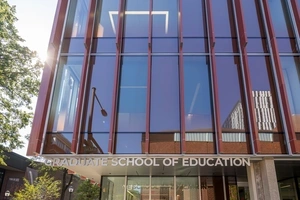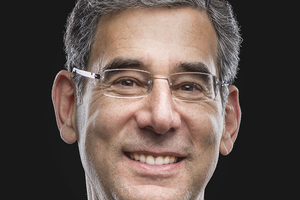Faculty Expert
Artificial intelligence tools can generate lesson plans in an instant—but that doesn’t ensure high-quality, enriching, and contextually relevant instruction.
Penn GSE Associate Professor Bodong Chen, an educational technologist and learning scientist, investigates how innovations like AI impact instructional practices, including the use of AI-powered lesson plan generators.
With these tools, educators input parameters, including content area, grade level, and curriculum standards, and the AI generator produces lesson plans. While the technology is promising for efficiency and customization, it also has its limitations.
In a recent analysis of 90 lesson plans produced by commercial AI generators, Chen and his co-authors found AI-created lesson plans constrained opportunities for student agency, engagement, and constructive dialogue. Understandably, the plans—generated using AI models that were likely trained on lesson plans scraped from the web—often embedded outdated ideas and didn’t reflect contemporary values.
However, Chen sees potential for educators to shape technology to produce engaging, effective lessons.
“We need to bring educators into the process of developing AI to add their educational wisdom and professional judgment,” he said.
As more teachers explore AI for lesson design, he shares this advice for educators to be AI developers and creators:
Become a student of AI
The first assignment is to go online and start exploring AI. General-purpose AI tools, including ChatGPT, Claude, and Google Gemini, are free, user-friendly, and widely available. Some school districts subscribe to education-specific AI tools, such as Magic School AI.
Whatever platform you choose, Chen recommends experimenting with “prompt engineering” or crafting inputs that guide the generator. Rather than simply asking, “Create a lesson plan for 3rd grade science,” enter specifics for your school community, including grade, subject, unit, lesson goals, and activities of your choice (e.g., group project, debate, or portfolio-based assessment). Examine the results and compare them to lessons you’ve been using in your classroom.
Refine your search
For more relevant results, feed the AI tool detailed examples. The more detailed inputs help produce dynamic and relevant instructional ideas. Upload curriculum framework or rubrics. Share personal reflections on student work and artifacts—without any identifying information to protect privacy. Carefully evaluate if the lesson aligns with your educational philosophy, as well as school and community values.
Test, reflect, and iterate
Once you’re satisfied with the AI-powered lesson plan, it’s time to try it out. Implement the activity in your classroom. Take detailed notes on student engagement and outcomes to track the lesson’s efficacy. Ask a colleague to try it in their classroom and gather feedback from the students and other educators.
Create a feedback loop
Now, it’s time to use your classroom observations to refine the lesson. Return to your AI tool and add the reflections. Revise your prompts to highlight where students struggled or excelled. Request new ideas for activities or challenges.
Then, test the revised lesson with the same or another group of students—a different period, semester, or school year. Enter another round of feedback into the tool and continue refining. This ongoing feedback loop will help strengthen instruction and build confidence in AI.
Participate in research and development
As technology companies refine their tools and teachers explore AI services, the educational community can collectively help build better solutions.
Chen suggests that teachers join professional communities for teachers, and meet educators from other schools and districts to exchange ideas and best practices.
Teachers can advance AI by volunteering to test new tools. Chen’s team, for instance, is building a custom AI-powered lesson plan generator called CraftPad in partnership with educators.
Power of partnerships
Another effective way to enhance AI lessons is by leveraging expertise in your local community.
School districts can partner with local higher education institutions and nonprofits or join online communities to advance AI learning and implementation. For example, Penn GSE and the School District of Philadelphia collaborate on the Pioneering AI in School Systems (PASS) program to support educators and school leaders as they integrate AI into the classroom.
From initial exploration to R&D to community partnerships, Chen said the overarching goal is to infuse AI tools with human capacity, experience, and values, creating contextually relevant supports that enrich students’ learning rather than outsourcing teaching to technology.

Bodong Chen is a learning scientist and educational technologist who strives to make learning a meaningful part of social participation for people of all backgrounds and circumstances. His scholarly inquiry integrates knowledge media design, software engineering, and data science methods to continually improve infrastructures for learning.
Subscribe to the Educator's Playbook
Get the latest release of the Educator's Playbook delivered straight to your inbox.
Media Inquiries
Penn GSE Communications is here to help reporters connect with the education experts they need.










